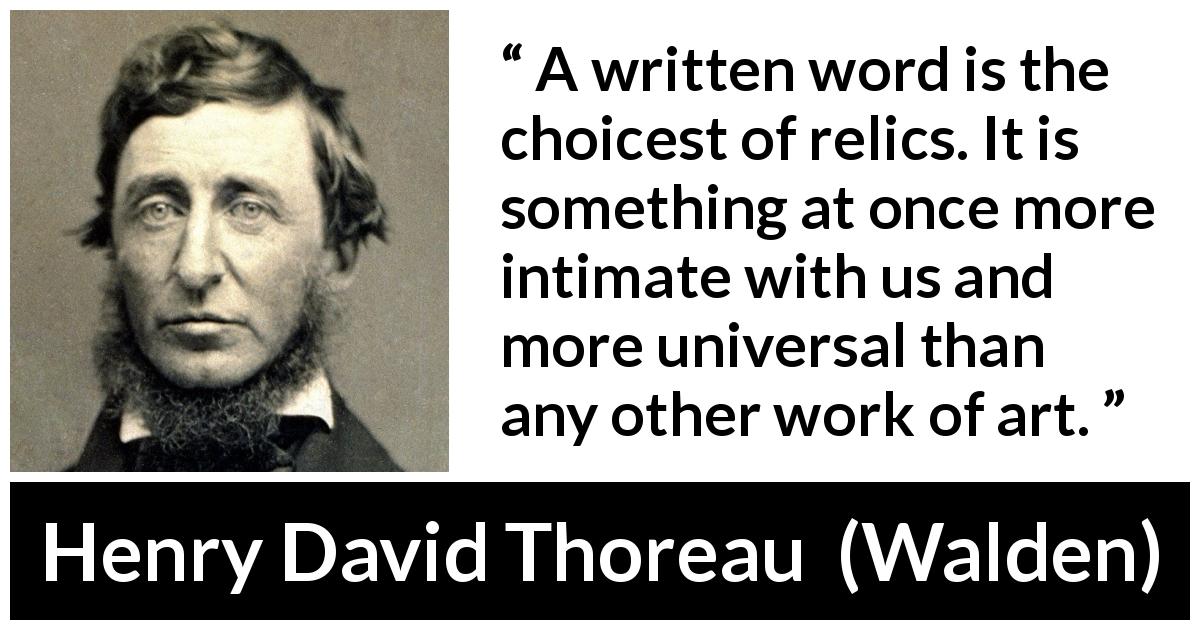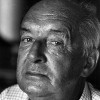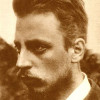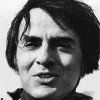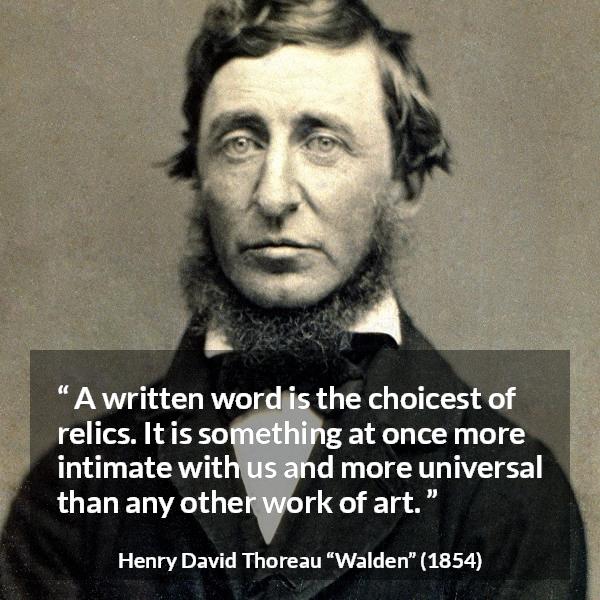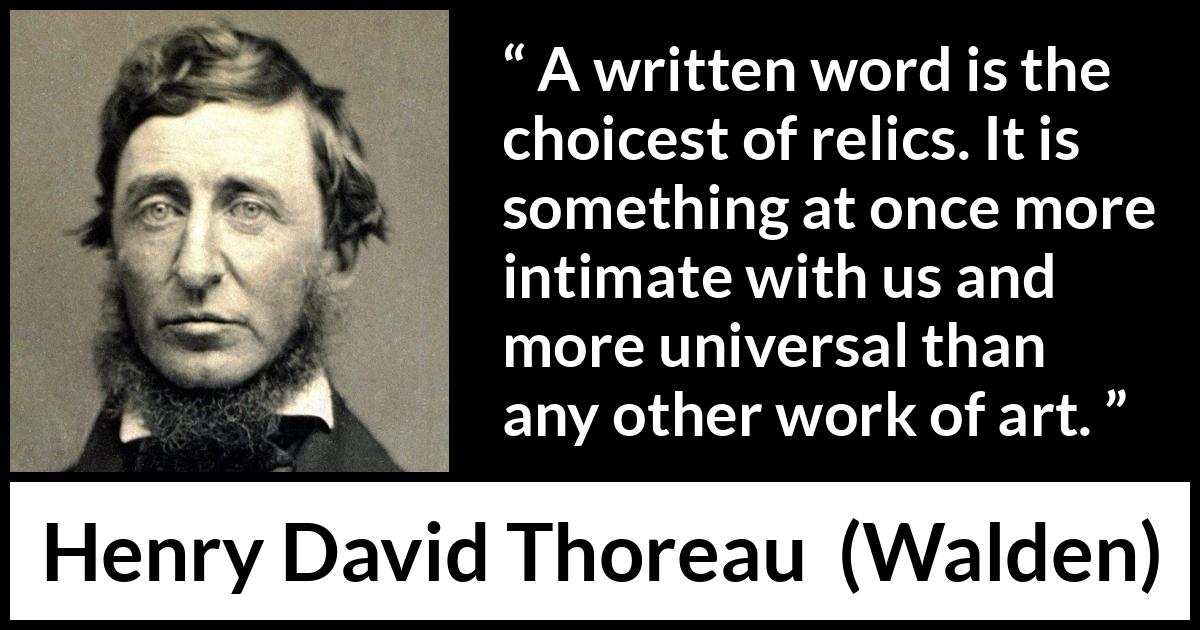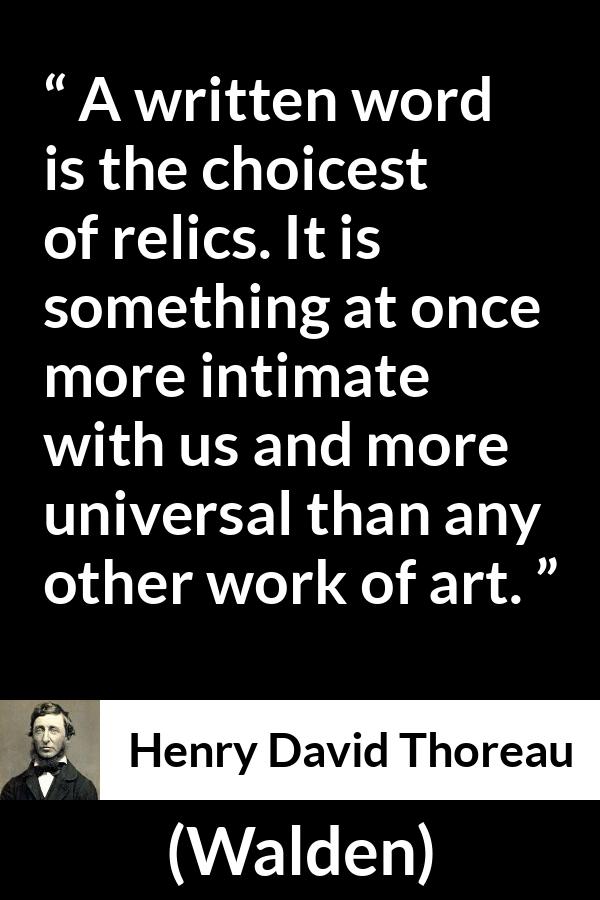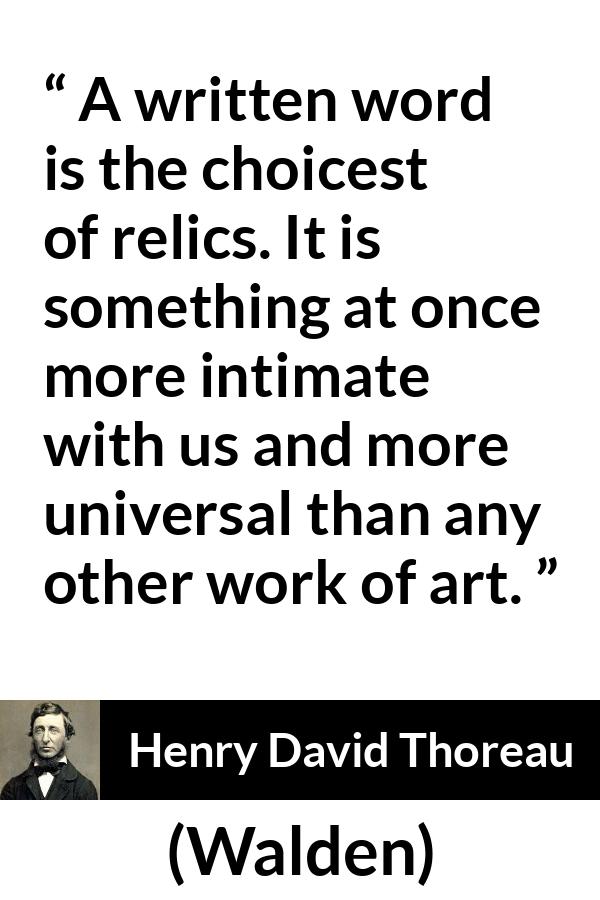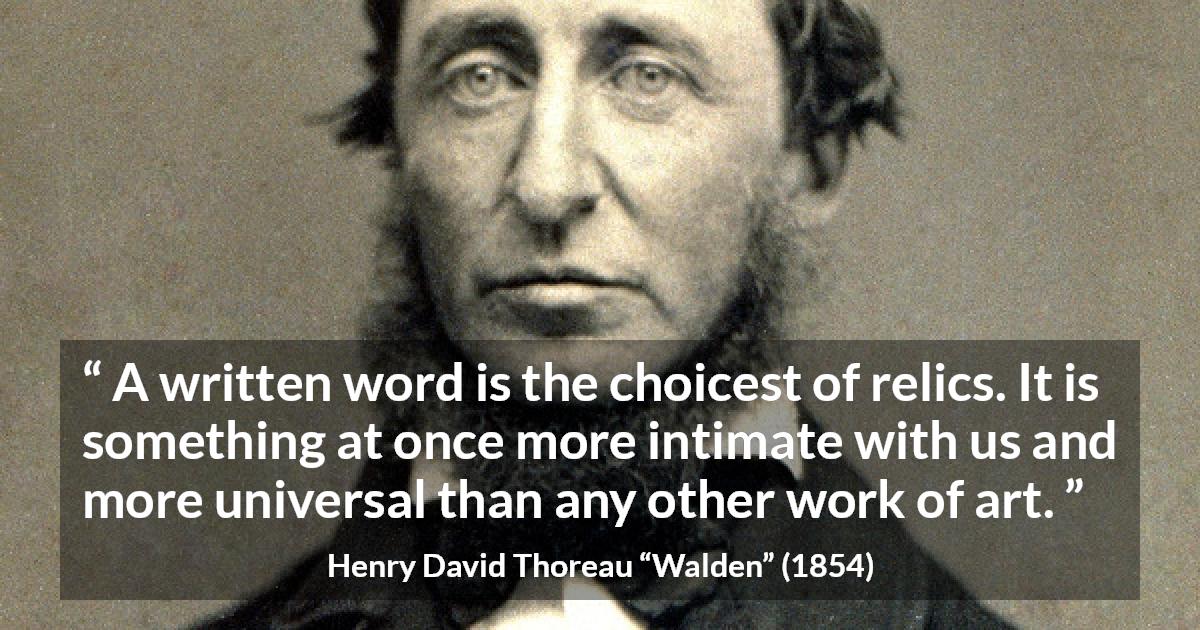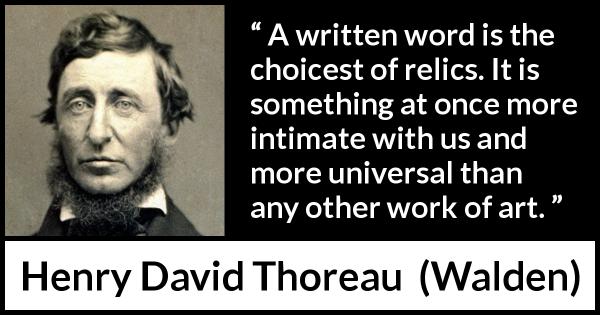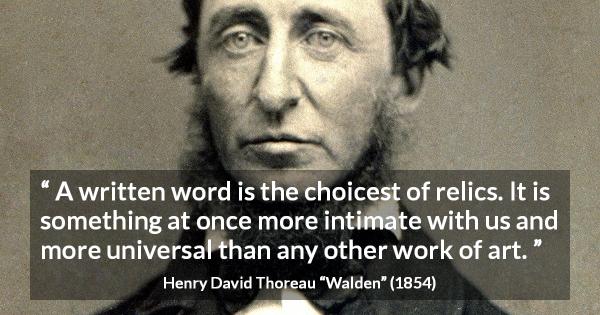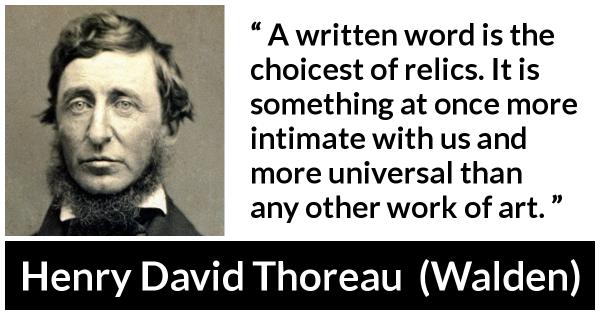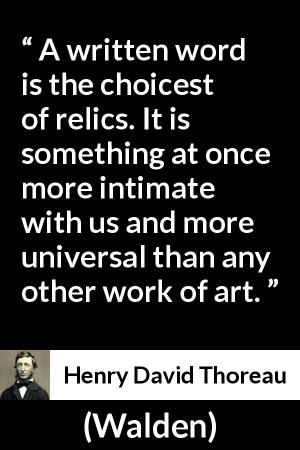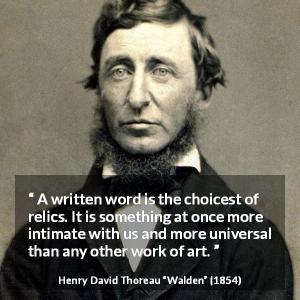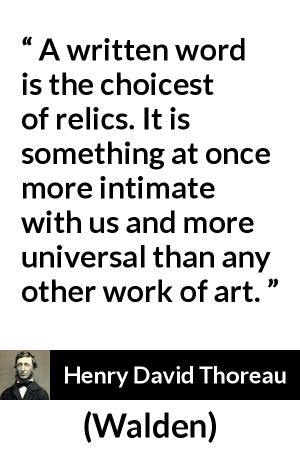“ A written word is the choicest of relics. It is something at once more intimate with us and more universal than any other work of art. ”
Henry David Thoreau, Walden (1854). copy citation
| Author | Henry David Thoreau |
|---|---|
| Source | Walden |
| Topic | words language intimacy universality |
| Date | 1854 |
| Language | English |
| Reference | |
| Note | |
| Weblink | https://www.gutenberg.org/files/205/205-h/205-h.htm |
Context
“The orator yields to the inspiration of a transient occasion, and speaks to the mob before him, to those who can hear him; but the writer, whose more equable life is his occasion, and who would be distracted by the event and the crowd which inspire the orator, speaks to the intellect and health of mankind, to all in any age who can understand him.
No wonder that Alexander carried the Iliad with him on his expeditions in a precious casket. A written word is the choicest of relics. It is something at once more intimate with us and more universal than any other work of art. It is the work of art nearest to life itself. It may be translated into every language, and not only be read but actually breathed from all human lips;—not be represented on canvas or in marble only, but be carved out of the breath of life itself.” source
No wonder that Alexander carried the Iliad with him on his expeditions in a precious casket. A written word is the choicest of relics. It is something at once more intimate with us and more universal than any other work of art. It is the work of art nearest to life itself. It may be translated into every language, and not only be read but actually breathed from all human lips;—not be represented on canvas or in marble only, but be carved out of the breath of life itself.” source
